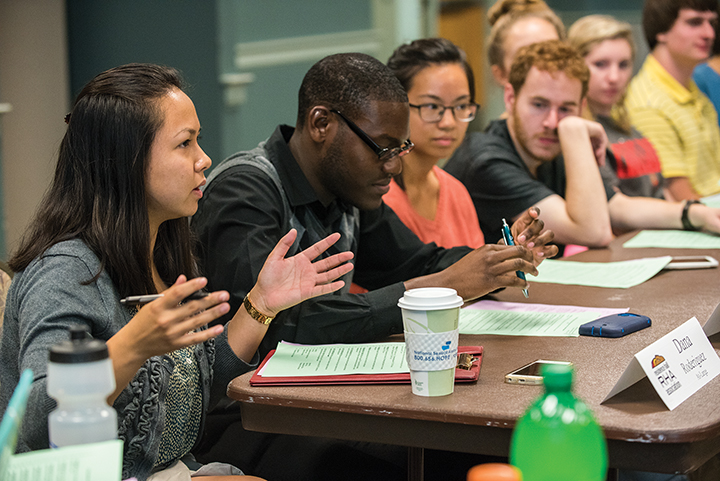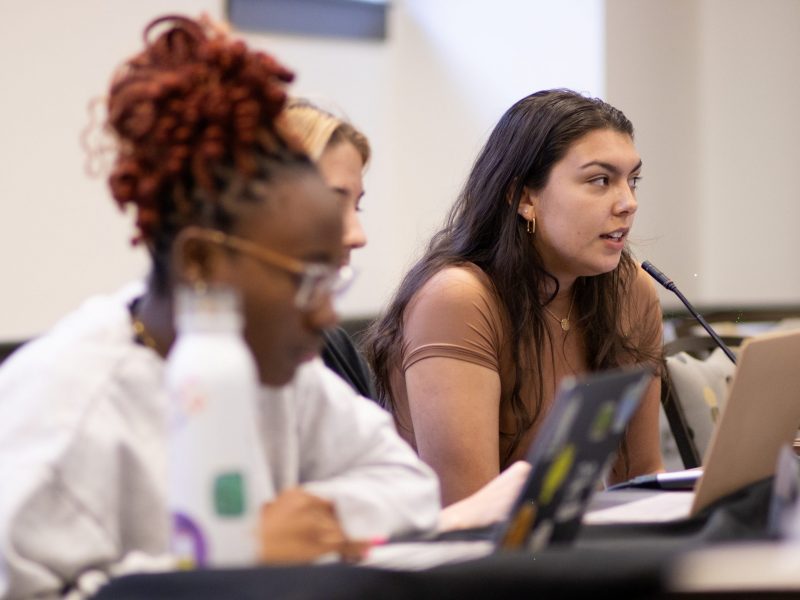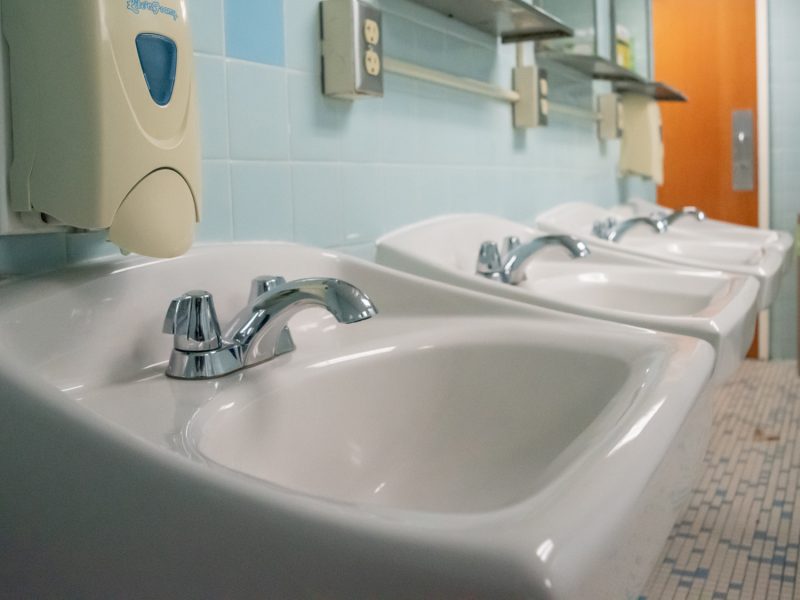The Residence Hall Association Senate voted to support three budget proposals — from the Department of Resident Life and Residential Facilities, Dining Services and DOTS — during a meeting Tuesday evening.
The departments’ directors presented their fee proposals at the last senate meeting on Feb. 2, then met with members of their respective RHA Senate advisory committees to answer questions and address concerns the following week.
The final vote on each proposal was 34-0 with one abstention.
If the current proposals hold, room fees will rise an average of almost
4 percent next year. The exact costs and increases will depend on individual living situations due to the more expansive differentiated rate structure Resident Life introduced for this academic year.
“We understand that costs do go up and … things aren’t always under their control,” said Tzvi Glazer, a sophomore government and politics and sociology major and chairman of the Resident Facilities Advisory Board. “They do everything they can to minimize costs. They work very hard to keep [the increase] under 4 percent.”
Parking permit costs will also go up under the Department of Transportation Services’ proposal for the coming fiscal year. The budget calls for a $17 and $33 increase on the yearly vehicle permit for commuting and resident students, respectively, while the faculty rate will increase according to salary.
The Department of Transportation Services managed to keep these increases much lower than initially expected, said junior Sasha Galbreath, a government and politics major and chairwoman of the Transportation Advisory Committee.
“We were looking at a huge decrease in parking spaces,” Galbreath said. “[DOTS Director] David Allen and his entire department made the favorable choice, in my opinion, to lessen special event parking so it wouldn’t raise student fees.”
Faced with heavy parking revenue losses due to construction projects on campus, DOTS had forecast the need for a 16 to 17 percent increase in student parking fees — an increase of about $41 for commuters or $79 for on-campus residents. Instead, the department opted to cut the special event parking buffer — not-for-sale parking spots intended to help accommodate large crowds — from 1,500 spaces to about 500 to 600.
Dining Services is also calling for a $161 — or 3.75 percent — increase for the campus meal plan.
“Based on the information we were presented by Dining Services, the increases called for regarded salaries and increases in food costs,” said freshman Chaney Schultz, an international business major and the vice chairwoman of the Dining Services Advisory Board. “Those really aren’t fees that we can do anything about. It’s not like Dining Services is charging a higher fee just because they want to.”
The university’s Committee for Review of Student Fees and university President Wallace Loh will review the proposals before they are sent to the University System of Maryland Board of Regents for approval later this year.
“RHA’s main goal is to keep student fees low,” Galbreath said. “At the end of the day, that’s our main priority, and I think we’ve achieved that today.”



